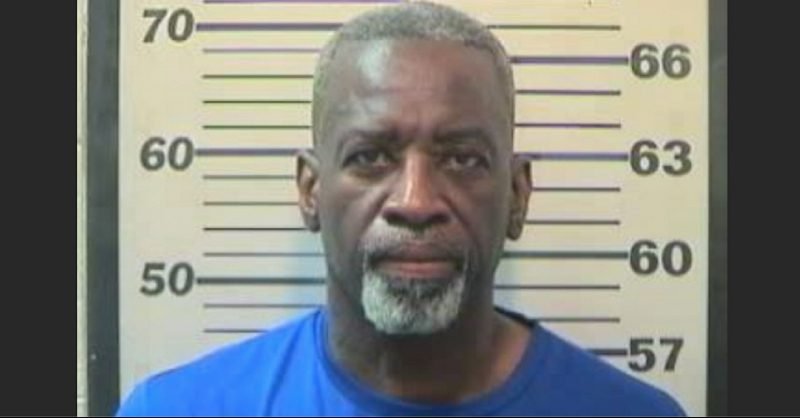
It has been a while since I’ve responded to something written by Dr. David Tee — whose real name is Derrick Thomas Thiessen. Thiessen continues to rage-blog about me and Ben Berwick (Meerkat Musings). For the most part, I have ignored Thiessen’s bloviating, but his latest post about me deserves a response.
I am still working on a post titled “Who is Dr. David Tee”? One thing I know for sure is this: Thiessen is a staunch defender of Christian rapists, child molesters, predators, and abusers. This fact is shown once again in his latest post about me.
Here’s what Thiessen had to say (all spelling and grammar in the original):
BG has a series called Black Collar Crime.
BG is short for Bruce Gerencser. Thiessen is too lazy to type out my name, so he uses BG instead. He does the same with Meerkat Musings (Ben Berwick).
He is soooo brave ‘outing people’ who have already been arrested and saying how bad they were. it doesn’t take much to read a newspaper or two to get these stories. These men have already been outed so there is no need for him to write this series.
Actually, the Black Collar Crime series takes a significant amount of time for me to write. For each story, I typically read several news sources, check out the alleged offender’s social media accounts, and read the offender’s church website. I also view and listen to their videos and podcasts. I always want to make sure I accurately report these stories. Sometimes, thanks to churches quickly wiping all mention of offenders from their websites, I have to use the Wayback Machine to find older iterations of church websites. All of this takes time.
I do not, at any time, say how “bad” offenders are. I use headlines that are factual, not sensational. These headlines are typically built from the news stories themselves.
I have explained to Thiessen numerous times why I publish the Black Collar Crime Series. Sometimes, you have to tell toddlers things numerous times before they “get it,” so I will try one time to ‘splain to Thiessen why I write this series.
I use Google Alerts to notify me when there are new stories about clergy criminal misconduct — especially sex crimes. I receive several hundred alerts a day. I sift through these alerts to find stories best suited for the Black Collar Crime Series. So far, I have published over 1,000 articles, with hundreds more waiting to be reviewed and posted to this site. Many of these stories come from one or two news sources. All too often, these reports quickly disappear or are placed behind paywalls. By publishing them on this site, I am providing a public record of these clerics and their crimes.
Plus, he is not helping law enforcement as the people he records have already been arrested. All he is doing is showing that he can jump on the beat-down bandwagon instead of showing the pastor love, forgiveness, mercy, and so on.
Preachers claim to speak for God. They claim to believe and practice the Bible. Many of them preach one thing and do another. Preachers are viewed as moral authorities, so when they don’t practice what they preach, their hypocrisy needs to be pointed out.
Evangelical churches are known for hiding and covering up criminal behavior (especially sex crimes) by clergymen, deacons, evangelists, missionaries, Sunday school teachers, bus workers, and other church/ministry leaders. Just as it is important to expose offending preachers, it is also important to expose offending churches.
There’s no bandwagon for me to jump on. Only a handful of people and groups are writing about clergy criminal behavior. It’s not easy to daily wade through the Evangelical sewer, but doing so is important. We must not let preachers and churches continue to criminally harm people without being called to account. The best way to do this — for me, anyway — is to write the Black Collar Crime Series.
Thiessen seems to think I should feel sorry for the offenders: the rapists, child molesters, sexual predators, and abusers; that I should show them love, mercy, and forgiveness (and so on, whatever the hell that is). He’s joking, right? Forgiveness is up to the victim, not me. Mercy is up to the courts, not me. And love? That’s up to their families, not me. My responsibility is to write this series and shine light on their wicked behavior.
But enough about that series, we have noticed that he only publicly attack those who said they are Christian. That is kind of biased and very dishonest. We challenge him to do a black-collar crime series on atheists.
Yes, it is the Black COLLAR Crime series, a riff on the white collar many clergymen wear. This blog is primarily about Evangelicalism, not atheism. The Black Collar Crime Series, Red Collar Crime Series, and other series fulfill that mission.
We know there are plenty of atheists who make the police blotters and have been arrested for numerous crimes. Let’s see him be honest for a change and do both sides of the street instead of hating on only those he was once a part of.
There is a connection between religion and the crimes committed by preachers. I will gladly write articles about crimes committed by atheists in the name of atheism, so I am calling Thiessen’s bluff. Please send me any news stories of crimes committed by atheists; crimes where atheism played a part. Remember, offending preachers often use religion, theology, and the church to prey on people. Can this happen with atheists? Sure, but I currently don’t know of any stories about predator atheists.
I am sure readers of Thiessen’s words will see that he continues to besmirch my character. I expect this of him. He claims I am dishonest, a liar, yet he provides no evidence for his claims. I get it. Theissen doesn’t like the Black Collar Crime Series. I suspect the series gets too close to home for him, so, unable to refute the message, he rails against the messenger.
Bruce Gerencser, 68, lives in rural Northwest Ohio with his wife of 47 years. He and his wife have six grown children and sixteen grandchildren. Bruce pastored Evangelical churches for twenty-five years in Ohio, Texas, and Michigan. Bruce left the ministry in 2005, and in 2008 he left Christianity. Bruce is now a humanist and an atheist.
Your comments are welcome and appreciated. All first-time comments are moderated. Please read the commenting rules before commenting.
You can email Bruce via the Contact Form.










